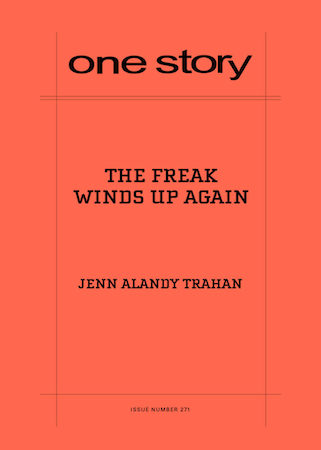If you enjoy reading Electric Literature, join our mailing list! We’ll send you the best of EL each week, and you’ll be the first to know about upcoming submissions periods and virtual events.
The 2020 Tokyo Games will be defined by many things—the anachronism of its title, the risk of superspreading, the welcome absence of Matt Lauer—but, hopefully, these Olympics will also be remembered for bringing mental health to the forefront of popular discourse.
Simone Biles’ “twisties.” Michael Phelps’ commercials for Talkspace. Noah Lyles’ transparency about antidepressants. All repeat the same refrain: Athletes—no matter how strong, fast, or high-flying—have feelings, too. But in their superhumanity, these competitors, pressured to perform for the entertainment of the masses, are relegated to an almost subhuman status.
Encompassing everything from the grueling quotidian to the triumphantly sublime, these seven short stories affirm athletes’ humanity, capturing them in all their flawed glory.
“Lady Leopard” in Joyland by Drew Calvert
After a spine-fracturing fall during the 1980 Olympic Trials, Jesse Munns’ gymnastics career was over. But 15 years later, he’s coaching Angela Torres, a 16-year-old phenom with a legitimate chance to reach the heights he never did. Calvert’s characters vault—literally and literarily—off the page: Jesse and his fanatical love of the sport, Angela with her shrewd intellect and burgeoning outside interests. By contrasting their outlooks, Calvert illuminates the dangers of hanging one’s self-worth on athletic success.
“Running” in SmokeLong Quarterly by R.S. Thomas
This summer, Sunisa Lee not only made history as the first Asian woman to win the Olympic gymnastics all-around title, but she also helped lend visibility to her Hmong American community in Minnesota. In this flash fiction piece, the residents of a Native American reservation hope for a similar outcome: that their high school track star, Bobby Riley, can put them on the map. Unlike Lee’s American Dream success story, however, Bobby’s Olympic dreams are wrecked by racism and violence.
“Futures” in The New Yorker by Han Ong
Welcome to the world of tennis’ minor leagues: no coaches, no big-name sponsors—just low-ranked players trudging from tournament to tournament, hoping to rack up enough ATP points to qualify for a Grand Slam.
Every year, for a mid-level tournament in La Jolla, California, a wealthy business tycoon hosts one of these aspiring pros, offering food and lodging in return for private lessons for his 18-year-old son, Toby. Acquainting himself with each athlete that circles through his home, Toby comes to understand the resilience required to last in the sport—and deems himself unready for the task.
“Superking Son Scores Again” in n+1 by Anthony Veasna So
Superking Son is “a regular Magic Johnson of badminton,” but lately, his attention has been elsewhere—removed from the court, where he’s supposed to be coaching the high school team, and funneled into keeping his Cambodian grocery store afloat. Enter new transfer student Justin: rich, Mustang-driving, and a bravura badminton player in his own right. Tension naturally arises, as members of the badminton team find their loyalties divided between Superking Son and Justin, culminating in a shuttlecock showdown between the two.
But So doesn’t give us an epic moment; instead, he foregrounds just how pitiful the scene is: a man-child trying to strong-arm a kid, seeking to recover his ego at all costs. Superking Son, previously buoyed by the apocryphal tales of his athletic prowess, has nothing left but the weight of trauma and adult responsibilities.
“The Freak Winds Up Again” in One Story by Jenn Alandy Trahan
The narrator of “The Freak Winds Up Again” is not an athlete, but she’s a little bit obsessed with one: baseball pitcher Timmy Lincecum. Sitting at the bar of a Buffalo Wild Wings, she looks on in awe as Timmy throws a 148-pitch no-hitter; in pride as she points out that, as a fellow Filipino, he looks like he could be related to her. Later, she makes her boyfriend’s roommates watch the replay.
Grieving the loss of her brother to suicide, the narrator finds solace in Timmy’s accomplishments, as well as in Timmy’s baseball origin story—how he watched his older brother pitch in their backyard and wanted to be just like him. On and off the field, Timmy gives the narrator hope.
“Meshed” in Clarkesworld Magazine by Rich Larson
In the near future, most top athletes are “meshed”—fitted with neural implants that allow viewers to see what players see, to feel what players feel, to travel beyond the confines of mere vicarious experience. But when Oxford Diallo, a Senegalese basketball prodigy, refuses the mesh, the Nike agent assigned to recruit him resorts to dirty tactics. Through its speculative elements, Larson’s story dissects the boundaries of parasocial relationships, shining a light on our culture’s commodification of athletes’ bodies.

“L. DeBard and Aliette” in The Atlantic by Lauren Groff
Olympic swimmers training during a pandemic… I know, I know, it’s difficult to see how this story is relevant to our current moment. In truth, though, “L. DeBard and Aliette” is far less concerned with the nitty-gritty of drills and races as it is with the intrigue of its title characters’ clandestine love affair. But while the swimming itself may take a backseat to personal dramas, Groff’s narrative offers another picture of elite athletes. Between the contests lost and medals won, athletes live and love and hurt like anyone else.






